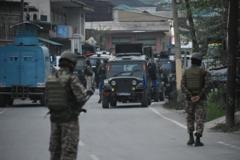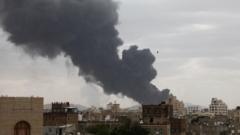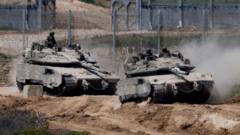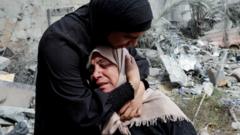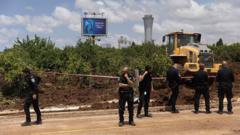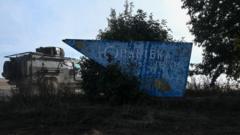In recent developments, Israel has intercepted a Houthi drone while tensions escalate between the two entities, fueled by ongoing military responses and recent statements from U.S. officials.
Middle East Escalation: Israel and Houthi Tensions Rise

Middle East Escalation: Israel and Houthi Tensions Rise
Israel shoots down Houthi drone amid escalating tensions following U.S. stance shift.
Israel's military announced on Wednesday that its air force successfully shot down an unmanned drone approaching from the east. This incident follows President Trump’s declaration that the United States would withdraw from direct conflict with the Houthi rebels, an Iran-affiliated group based in Yemen. In defiance of the potential de-escalation, Houthi officials reaffirmed their intent to continue strikes against Israel, insisting that acts of aggression towards Yemen will not go unanswered.
"The continuous targeting of Yemen is unacceptable and we will respond," stated Mohamed Abdelsalam, the Houthi spokesman, during an interview with Al Jazeera. The group’s rhetoric reflects a fierce commitment to retaliate for both attacks in Yemen and the ongoing conflict in Gaza.
Simultaneously, Israeli airstrikes this week have targeted various locations in Yemen, resulting in the confirmed deaths of at least seven individuals, according to local casualty reports. Notably, one airstrike severely damaged Yemen's Sana International Airport, leading to approximately $500 million in losses and forcing a halt to all flight operations.
Khaled Al-Shaif, the airport's director, indicated that three aircraft were destroyed during the attack, putting a significant strain on the already war-torn country's infrastructure. Israel's attack on Yemen was said to be a direct response to a Houthi missile strike that occurred near Ben-Gurion International Airport, located just outside Tel Aviv, which injured at least six people and prompted several airlines to temporarily suspend operations.
As the confrontation continues, both sides seem poised for an extended tit-for-tat exchange, with little indication of an imminent resolution to the growing conflict.
"The continuous targeting of Yemen is unacceptable and we will respond," stated Mohamed Abdelsalam, the Houthi spokesman, during an interview with Al Jazeera. The group’s rhetoric reflects a fierce commitment to retaliate for both attacks in Yemen and the ongoing conflict in Gaza.
Simultaneously, Israeli airstrikes this week have targeted various locations in Yemen, resulting in the confirmed deaths of at least seven individuals, according to local casualty reports. Notably, one airstrike severely damaged Yemen's Sana International Airport, leading to approximately $500 million in losses and forcing a halt to all flight operations.
Khaled Al-Shaif, the airport's director, indicated that three aircraft were destroyed during the attack, putting a significant strain on the already war-torn country's infrastructure. Israel's attack on Yemen was said to be a direct response to a Houthi missile strike that occurred near Ben-Gurion International Airport, located just outside Tel Aviv, which injured at least six people and prompted several airlines to temporarily suspend operations.
As the confrontation continues, both sides seem poised for an extended tit-for-tat exchange, with little indication of an imminent resolution to the growing conflict.






